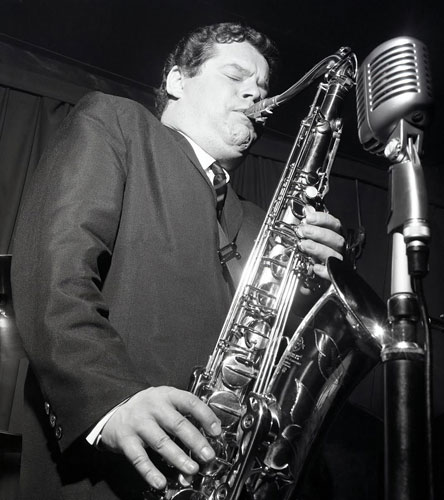
Mark Baxter, in collaboration with Lee Cogswell, has delivered Tubby Hayes – A Man in a Hurry, a film that charts the life and times of perhaps Britain’s greatest jazz exponent. We talked about to Mark about the man, the documentary and the 60s jazz scene, along with Paul Weller and Martin Freeman’s involvement in the project.
1. The first question is the obvious one. Who is Tubby Hayes and why should we care?
Tubby Hayes was born in St. Pancras London in 1935 . A professional tenor sax player at 15, he went on to form the best British modernist Be Bop band ever, namely The Jazz Couriers, with Ronnie Scott in 1957.
He was the first solo UK jazzman to go and play in New York in 1961, where with his reputation going before him, he was checked out by Miles Davis at his first gig. He returned a few times after that and recorded with Roland Kirk, James Moody, and Clark Terry etc. and was produced by Quincy Jones. Big company, among which he held his own.
In the UK, he topped every readers jazz poll, not only on Sax, but vibes and flute too for ten years straight. He was much in demand over here and by the late 60s, he had worked with Duke Ellington, Ella Fitzgerald and Henry Mancini among many others. He played lead sax on the soundtracks to ‘The Liquidator’, ’Dr Terrors House of Horrors’, ‘The Italian Job’ and was in the line up for ‘Alfie’. He recorded his seminal album’‘Mexican Green’ in 1967 and then succumbed to a chronic heroin habit, which basically destroyed his health.
He died in 1973 having a second heart operation. He was just 38.
Personally I’ve felt for many years, that Tubby and his vast body of work is criminally undervalued and this documentary is us trying to put him back on the cultural map. We celebrate the likes of Charlie Parker, Miles Davis and John Coltrane etc. and I’m pleased to say many others, feel Tubby was good enough to be judged in that company.
If you love quality music of any genre, then you really should know the name and sounds of Tubby Hayes and if you feel part of the Modernist scene, and don’t know his name, then you should be asking yourself why?
2. Tubby was a big name in the sixties, but is perhaps less of a household name today. Why is that? Is it purely down to that tragically early death at just 38?
He was massive in the UK in the early 60s as you say, with two prime time TV shows and a Jazz 625 Special to his name. We have discovered a lot of archive material from the BBC whilst making the doc., so he was obviously on television a lot. It appears the relentless rise of Beat/Pop and Soul music in the mid to late 60s wiped away the ‘jazzers’, who were now judged ‘old fashioned’ and with venues they once played regularly at now catering for a different, younger crowd, work dropped off.
Couple that with a crippling drug problem that resulted in a notorious drug bust by Pilcher of the Yard – who also got John & Yoko and George Harrison – his life and career was simply in a nosedive. When he died in 1973, there is very little mention in the press; he had simply been forgotten by the masses.
3. From being fans of the man to creating a documentary film alongside Lee Cogswell is quite a big step. Whose idea was it initially and how did you kickstart the project?
I discovered Tubby on a compilation called ‘Jazz Club 2’ by DJ Paul Murphy in the early/mid 80s and Tubby’s tune on there, ‘A Pint of Bitter’ just stayed in my brain for years. Just loved the melody. So I became a fan of Tubby and over the next 30 years, I picked up more albums and CDs, but couldn’t get too much info. on the man himself.
Then after a redundancy, I changed careers and I became involved in the world of books, writing seven in ten years by 2013. They did ok and enabled me to take a break from the 9-5 world and explore more creative work. I then decided I would take a break from writing and look into making a documentary. I’m a big fan of music docs. so wanted to try my hand at that game. Tubby was the obvious story choice to me, mainly because I loved his music and it was a tale that hadn’t been told and so was fresh ground to cover.
I tried to get a commission from the BBC/Sky Arts etc., but drew a blank. I then met Lee on a video shoot for the band Stone Foundation. I really liked what he did with the footage; so in early 2013, I asked him if he wanted to make a doc. on Tubby with me. To be honest, he had no idea who Tubby was, but he really wanted to make a film of his own and said yes. So we now had the idea, the equipment and the crew, which was basically him and me. I then set off to raise the money.
4. How did you go about finding the right people to appear in the documentary and how did you manage to finance a project so far out or the mainstream?
I began the project by self-funding it, using some of my book earnings. I got the ball rolling by putting a bit in and then pals of mine started to back me in the project, and even my blessed mum and wife put a bit in. So we now had DIY crowd funding thing going on. In reality, it still wasn’t enough, but I used some of the contacts I had made in the last ten years to help with licensing the footage, music and photos and we finished it in late September this year. I then used other contacts to get numbers and emails for my target list of interviewees and we started travelling interviewing those who agreed to take part. We signed a distribution deal with Proper Records, who have been great to work with.
5. Was it easy to get people to talk about Tubby Hayes? Is he still highly regarded amongst his peers?
I was a little apprehensive personally thinking about conducting the first interviews, as it was something I hadn’t done before. So I did plenty of research first. Simon Spillett the musician and writer helped me enormously with this. Simon has written a book on Tubby called ‘The Long Shadow of the Little Giant’ and he gave me most of his research notes, which I took on holiday and read at least ten times. I then felt ready to ask questions and off we went.
I soon discovered a lot of the people we talked to got very upset and emotional when talking about Tubby. He was simply loved by everybody. A lovable rogue at times I guess, but those who knew him well, adored him and still missed him badly. I then knew we were onto something.
6. Was there anyone you couldn’t pin down for the doc?
As 2015 would have been the year of Tubby’s 80th birthday, we aimed at that as the deadline to release the film. We missed out on names like Gilles Peterson, Courtney Pine and Cleo Laine because we couldn’t make our diaries match theirs. Other people, and no names here, only wanted to make the film if it was commissioned and/or wanted a fee, which we couldn’t do. Then there were those who never replied to our requests, so the list of those taking part formed itself really.
7. Was the documentary an education for yourself? Did you find out more about Tubby Hayes than you previously knew? Did your impression of Tubby change at all?
It was a massive learning curve, I was so far out of my comfort zone, It was a bit scary at times and everything was so expensive, it was very worrying financially. But, the whole story kept driving us on as we learnt more and more about him. I certainly learnt a few personal things I didn’t know, and it’s fair to say, he was right character, and wasn’t one for messing about, hence our title. My admiration of Tubby only increased really, when you consider how hard he pushed himself to become a better player each day. The bad stuff, the drugs, and failed marriages were inevitable given the lifestyle he and many in the jazz field adopted.
8. I know it’s your own project, but are you happy with the end result? Was it a story worth telling?
Yeah totally. I watch a lot of docs. and I have to say this is up there production wise with many that are on your televisions most nights. Its better in fact than some Ive seen recently. Lee has done an amazing job with the directing and editing and full credit to him for all that. I have shown it to a select few before release and they all tell me they learnt a lot watching and wanted more of the story, which I think is a good sign. Always leave them wanting more as they say…
9. What do you hope people come away with after viewing Tubby Hayes: A Man in a Hurry?
My sole aim really at the start of the project was to get people checking out Tubby. I kept saying to people I met ]whaddya mean you ain’t heard of him!’ so I became determined to change that, so I kept name checking tunes for them to suss out by going on YouTube, i-Tunes, Spotify, whatever. As I said earlier I wanted to put him back on the map for the like minded, as I just knew people would warm to his music and ultimately him. If people end up buying the DVD and want to know more about Edward Brian ‘Tubby’ Hayes, then our work is done.
10. The documentary is narrated by Martin Freeman. How did you get him involved? Was he already a fan?
I’ve got to know Martin well over the past ten years or so, and we hook up for a cup of froth every now and then. He always asks what I’m up to and one day I mentioned this film. I asked him to be interviewed for it, but he declined, saying he didn’t really know the subject well enough, but said, ‘get it made and I’ll narrate it.’ An excellent second prize, I think you’ll agree.
He also opened up his contact book and did a bit of ringing around to help with recording studios etc. He did a great job with the narration, it was a real joy to be in the studio with him that day, and it sounds great. He’s a total mensch.
11. Paul Weller is down as executive producer. What kind of input has he had?
Like Martin, I’ve got to know PW pretty well in the last ten years. I am a fan first and foremost, so it was a bit odd and a big deal to talk to him on a regular basis about this and that I was doing. I can only speak as I find, and he has always been supportive of whatever project I was doing if he liked the idea, which was mainly with the books at the time. He gave me a song for the title sequence for the film ‘Outside Bet’ which was inspired by mine and Paolo Hewitt’s book ‘The Mumper
’, so he has been very generous to me over the years.
On this doc., he rang up TV companies on our behalf, and they rang us back once he had and they weren’t doing that before, and he suggested various interviewees and helped in other ways too. Again, a very busy fella who managed to find time to assist us. All we could ask for really.
12. Do you hope or expect that the documentary will bring his talent to a new generation of fans?
I sincerely hope so. I really feel there is a lot to discover in the doc. It will certainly educate people musically if nothing else. If they then tip others off onto Tubby, then we’re on the right path.
13. Talking of jazz, do you think it is undervalued on the current mod scene compared to soul / R&B?
At my advanced age – and that Julian Assange goes out more than I do – I’m rarely at the clubs anymore, so can’t really comment on nights to be honest, but I have noticed more jazz based compilations being released recently, the ‘Soho Scene’ ones spring to mind. Whatever gets the sounds out there is fine by me
14. In a similar vein, is British jazz even more undervalued compared to jazz of a similar era from over the Atlantic?
I think overall, it’s hard to deny the Americans had the edge on our guys from around that era, but some of our chaps from Tubby’s time, namely Stan Tracey, Phil Seamen, Bobby Wellins, Louis Stewart, Harold McNair and Tony Levin plus a few others would hold their own in the top company and often did so when the opportunity arose.
15. OK, so I’ve bought the documentary and liked what I’ve seen and heard. What would you suggest are starting points for building a collection of Tubby Hayes’ music and (in the wider sense) British jazz of that era?
Tubby wise, get the following albums – ‘Down in the Village’, ‘Tubbs Tours
’, ‘Return Visit!
’ and ‘Mexican Green
’ for starters and the single ‘Voodoo’. If you can find the vinyl of that, buy it.
As for the British scene in general – ‘Under Milk Wood’ by Stan Tracey (just for ‘Starless’ and ‘Bible Black’ if nothing else) ‘Flute and Nut
’ by Harold McNair ‘Cleopatra’s Needle
’ by Ronnie Ross spring to mind. Also look at Shake Keane
and Joe Harriott
for the West Indian influence on the UK scene back then. Important that.
16. Finally, what next? Are you planning on working on similar projects or was Tubby Hayes: A Man in a Hurry strictly a on-off?
I have been approached to do another doc. but that will be all down to if finances can be raised if do it or not. I can’t beg and borrow again like I did on. ‘A Man In A Hurry’. One thing I know is though, Lee and myself can do the job properly if it all works out.
I’m back writing the books too and I’m just about to finish another novel, hopefully do something with that in early 2016. I’m also going to be associate producer on a UK feature film, very arty, with a very strong cast, which hopefully begins shooting in Feb, so all and all, no complaints.
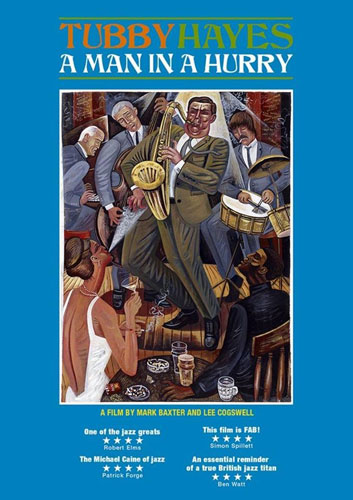
‘Tubby Hayes – A Man In A Hurry’ by Lee Cogswell and Mark Baxter is released on DVD on Monday October 26th 2015. You can order a copy here.
If you want to find out more, there is also a Facebook page, Twitter and a website.
If you can see it on the big screen, please do make the effort, Screenings confirmed are:
The Brighton Film Festival November 24th
‘Home’ – Manchester November 25th
‘Turnstyle Records’ – Streatham November 27th
‘The Verdict Jazz Club’ – Brighton December 4th
‘The Regent Street Cinema’ – London” February 5th 2016
To whet your appetite, here is the trailer…

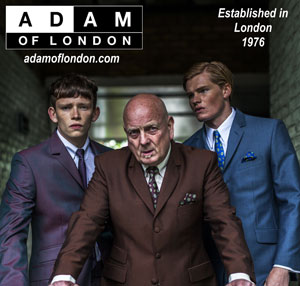

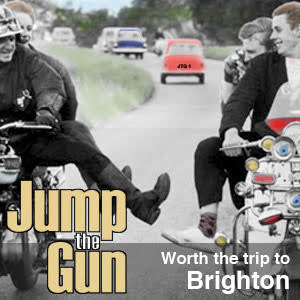


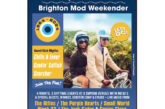

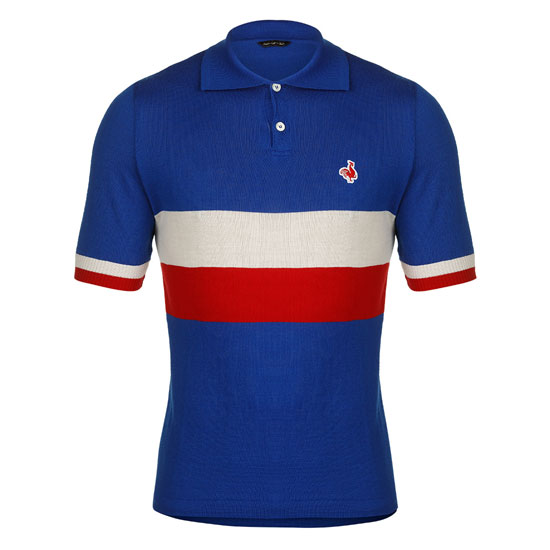
Mark Baxter is a fantastic barometer of modernist taste, anything he puts his name is always class! Can’t wait to see this! You know it’s going to be good!